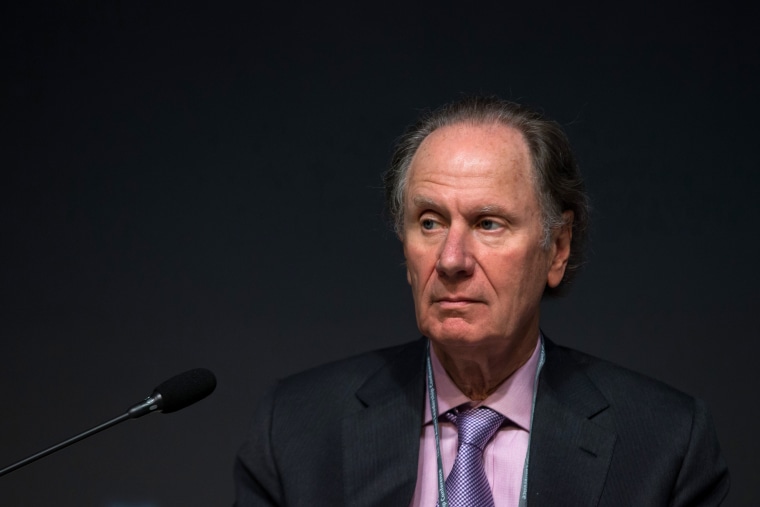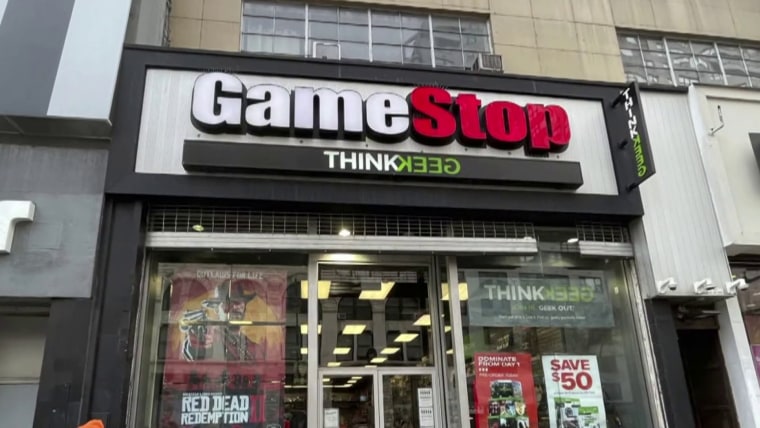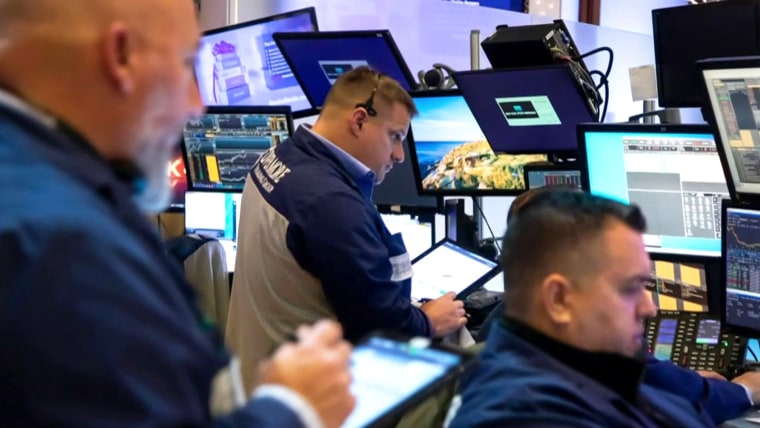The founder and manager of a $1.7 billion mutual fund that collapsed past yr has been charged by federal prosecutors with securities fraud and obstruction of justice for allegedly inflating fund asset values to retain trader dollars flowing, then falsifying documents to conceal the improprieties.
The Infinity Q Diversified Alpha Fund halted investor redemptions in February 2021, about 7 years after it was co-established by James Velissaris, 37, its main expenditure officer. A governing administration inquiry began, Velissaris stepped down and the mutual fund and a parallel hedge fund he oversaw commenced liquidating.

It was a scarce example of a massive mutual fund failure amid a roaring bull industry. And the collapse ensnared billionaire investor David Bonderman, co-founder of TPG, a substantial private-fairness agency that went general public this yr. The Bonderman Relatives was a significant trader in Infinity Q Money Administration, the expense organization overseen by Velissaris, regulatory documents demonstrate. Velissaris had worked for the Bonderman spouse and children just before he co-founded Infinity Q Capital Administration.
Prosecutors stated Velissaris inflated the worth of the funds’ holdings by $1 billion and manipulated the success for at the very least 4 many years to mask weak general performance. At selected periods in the course of 2020 when the pandemic was roiling the economic markets, the funds’ actual values ended up 50 % what buyers ended up told they have been, prosecutors explained. Certain positions held by the mutual fund “were reported at mathematically difficult valuations,” according to a civil grievance submitted against Velissaris on Thursday by the Securities and Exchange Fee.
In addition to securities fraud and obstruction of justice, Velissaris has been billed with wire fraud and lying to auditors. Just about every demand carries a most sentence of 20 a long time in jail.
The SEC also accused Velissaris of pocketing $27 million in management service fees produced by his improper valuation of the funds’ holdings. The SEC claimed its investigation into the debacle is continuing.
Mark Schonfeld, a law firm at Gibson Dunn who signifies Velissaris, offered this statement: “James managed investments at Infinity Q with the greatest integrity in accordance with all relevant concepts. We appear forward to vindicating James, who has been scapegoated by others who will have to response in court for their possess compliance failures and the losses incurred by their irresponsible liquidation of the portfolio.”
A spokesman for Infinity Q Funds Administration declined to remark.
The cash overseen by Velissaris were meant to make returns that did not shift in tandem with the general inventory and bond marketplaces. Numerous of their holdings involved bets on unique investments recognized as derivatives, since they are derived from other securities. The resources claimed annual returns of somewhere around 9.5 percent before they folded.
The Bonderman ties ended up a offering level for Infinity Q a presentation from the fund boasted that its buyers would gain obtain to the same “alternative investment methods initially created” for the prosperous spouse and children. Last 12 months, an Infinity Q Cash Administration spokesman said the Bonderman relatives was a passive trader in the business and experienced no control over its investments. The household missing “a sizeable amount” in the collapse, the spokesman claimed. TPG, the personal-equity agency cofounded by David Bonderman, did not answer to a ask for for comment from Bonderman on the prosecutors’ charges.
Prosecutors claimed the mispricing of property took spot from at least 2017 into 2021. Close to March 2020, with the resources in a tailspin, Velissaris sought a $100 million loan from the proprietors of Infinity Q Money Administration, the SEC claimed. The mortgage was not created.
Prosecutors’ allegations of mispriced belongings in the Infinity Q portfolios echo previous troubles at the mutual fund. In 2016, the fund was late in submitting a regulatory report because an independent pricing services experienced been not able to “support” some of its valuations. Just after that incident, the fund’s trustees, billed with overseeing it for investors, mentioned they experienced “worked closely” with Infinity Q Cash Management “to assure that the proper supply documentation for its valuation determinations are taken care of, and the adviser’s trade allocation oversight was enhanced to superior establish any faults or misallocations.”
Allegations that Velissaris manipulated returns and asset values for 4 many years immediately after that incident indicate the fund’s trustees were being supplying inadequate oversight, mentioned Marshall Glickman, an aggrieved trader in the Infinity Q fund. “Why was Velissaris in a place to misprice the property for 4 many years?” he requested.
Also disturbing, Glickman explained, is the amount of money of trader funds at this time currently being held back by the fund trustees to include litigation and other expenses incurred by the fund. Previous 12 months, the trustees established apart $750 million, declaring the major ingredient was for doable legal responsibility in connection with litigation submitted versus the Infinity Q fund. The established-apart is vital, the trustees stated, for the reason that insurance policies held to include lawsuit charges may be insufficient, and it does not cover specified bills, together with people involved with the liquidation and authorities investigations.
As a consequence of this set-aside, Glickman stated he has gained only 30 percent of his financial commitment back.
Fund investors harmed in the alleged fraud are also having to pay out around $900,000 a month in charges, information present. Among June 2021 and February, those bills totaled $7.24 million. “This could drag on for a prolonged time,” Glickman mentioned. “If this situation requires a few a long time, which is $36 million absent right there.”
Glickman reported he believes the SEC really should have appointed an unbiased team to manage the fund’s liquidation and disbursements, in its place of permitting the trustees who were on hand through the alleged fraud to oversee it.
An email to the fund’s trustees was not returned. Late previous calendar year, they permitted the development of a unique committee consisting of two new trustees to investigate and go after potential statements on behalf of the fund and its investors.

